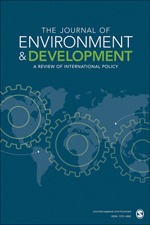The Journal of Environment & Development Volume 32, Issue 2
Virtually no attention has been directed towards how tax policies shape fisheries development in Sub-Saharan Africa and to their contribution to government revenue. This is despite abundant evidence of fish stock depletion in the continent, and a longstanding interest by economists and marine scientists in the role of government regulation of fisheries.
To help starting this discussion, the article provides an overview of the theoretical underpinning of fisheries taxation and of selected experiences of high-income countries. Following a presentation of fisheries economic contribution in Sub-Saharan Africa, the main debates on the fiscal treatment of fisheries are covered: Prioritising their welfare or wealth contribution; their co-management between local and central government; fishing agreements with distant water fishing nations; and the role of subsidies.
The review shows that while fisheries revenue contribution is likely limited in the short run, fiscal policies can be central in promoting the sector sustainable development.
